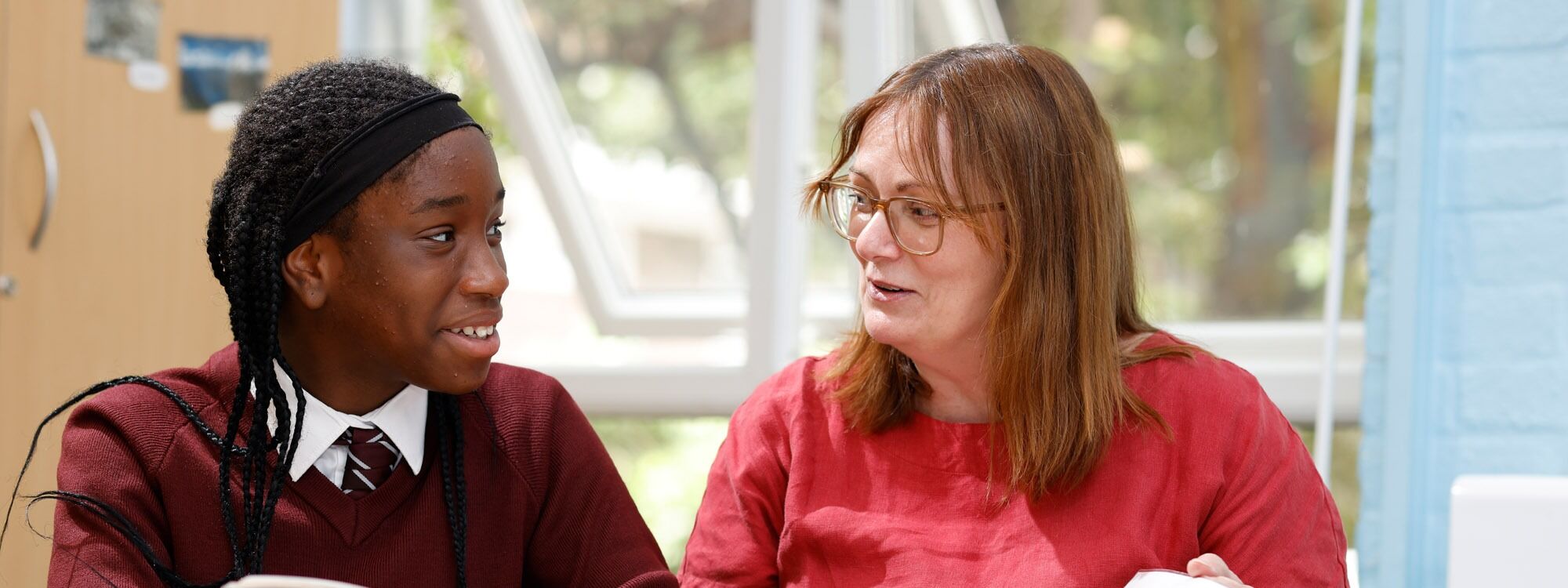- Home
- Curriculum
- Assessment Overview
Assessment Overview
Starting points
When monitoring students progress over time it is important to consider a students starting point when they arrive at the school. At Addey and Stanhope we use the average KS2 scaled score of Maths and Reading from primary school to determine a starting point for a student in order to measure progress.
This measure of prior attainment will also be used to set targets at KS4 which will be in line with national expectations. For students without KS2 assessment scores, additional assessments will take place in Year 7 in order to establish a strating to point. This information will be used to help inform decisions made by subjects when grouping students and setting, when appropriate.
Formative assessment at KS3 and KS4
Regular formative assessment will take place in order to monitor and ensure that students are making the necessary progress. Each Subject will devise a range of assignments or projects related to the curriculum being delivered which will allow students to apply their knowledge, skills and understanding. Feedback will then be given following the assesments to help students understand what they did well and what they need to do to improve. If required students will be supported with the areas they need to improve on. Formative feedback will be different in one subject to another depending on the nature of the assessment. For example, in some practical lessons, verbal feedback might be used instead of written feedback.
Summative assessment at KS3
Students will also undertake a number of summative assessments throughout the year. These could take the form of:
- timed assessments that capture students’ knowledge skills and understanding across a range of topics;
- pieces of work being identified as summative pieces which capture a range of knowledge skills and understanding over time.
In normal circumstances, students and parents will be provided with academic reports twice a year.
We will continue to use the Age Related Expectations (ARE) categories from primary school when assessing students. Three categories of attainment will be awarded for each subject as follows:
GDS - Working in greater depth above age expectations
EXS - Working at the age expected standard
WTS - Working towards the age-expected standard
Additionally, there will also be a + or – awarded to students at the end of each category. This will allow you to see how close your child is to the next category.
Measuring progress at KS3
By comparing a students 'Starting Point' and their ARE assessment grades a progress judgment will be made using the following categories with associated colour:
| Outstanding | The ARE grade being awarded is significantly higher than expected given a students starting point |
| Exceeding | The ARE grade being awarded is higher than expected given a students starting point |
| Expected | The ARE grade being awarded is broadly expcected given a students starting point |
| Just below | The ARE grade being awarded is just below expcectations given a students starting point |
| Concern | The ARE grade being awarded is significantly below expcectations given a students starting point |
For example, a student who came in to the school from KS2 as a Higher Prior Attainer, would be expected to achieve 'Greater Depth' in assessments as a minimum. If they acheive 'Expected Standard' in an assessment for a certain subject then they would be categorised as 'Just Below' or 'Concern' for progress in that subject.
Summative assessment at KS4
In years 10 and 11, students will regularly complete assignments that replicate or are versions of real exam questions (e.g. past exam questions). They will be marked and a 1-9 grade will be awarded. These will be common pieces of work decided by the Head of Faculty and/or Department. These assignments might be, for example, assessments at the end of units of work on a particular unit or topic. This will include two series of mock exams in year 11 where students will complete full assessments that cover the course specification for each subject.
The collection of this data will build up a bank of evidence that teachers can later use to make professional judgments. This information can also usefully be used by students, parents and teachers to identify strengths and areas of improvement feeding into Personal Improvement Plans.
Formative assessment will continue alongside summative assessment at Key Stage 4.
Measuring progress at KS4
Students starting points from KS2 will be used to set targets for each subject by considering national expectations. Targets will be ambitious to encourage students to get the best possible grades.
Progress will be measured by comparing stduents assessment grades to their target grades. The same progress judgements from KS3 will be used as follows:
| Outstanding | On track to acheive two or more grades higher than target grade |
| Exceeding | On track to acheive one grade higher than target grade |
| Expected | On track to acheive target grade |
| Just below | On track to acheive one grade below target grade |
| Concern | On track to acheive two more grades below target grade |
